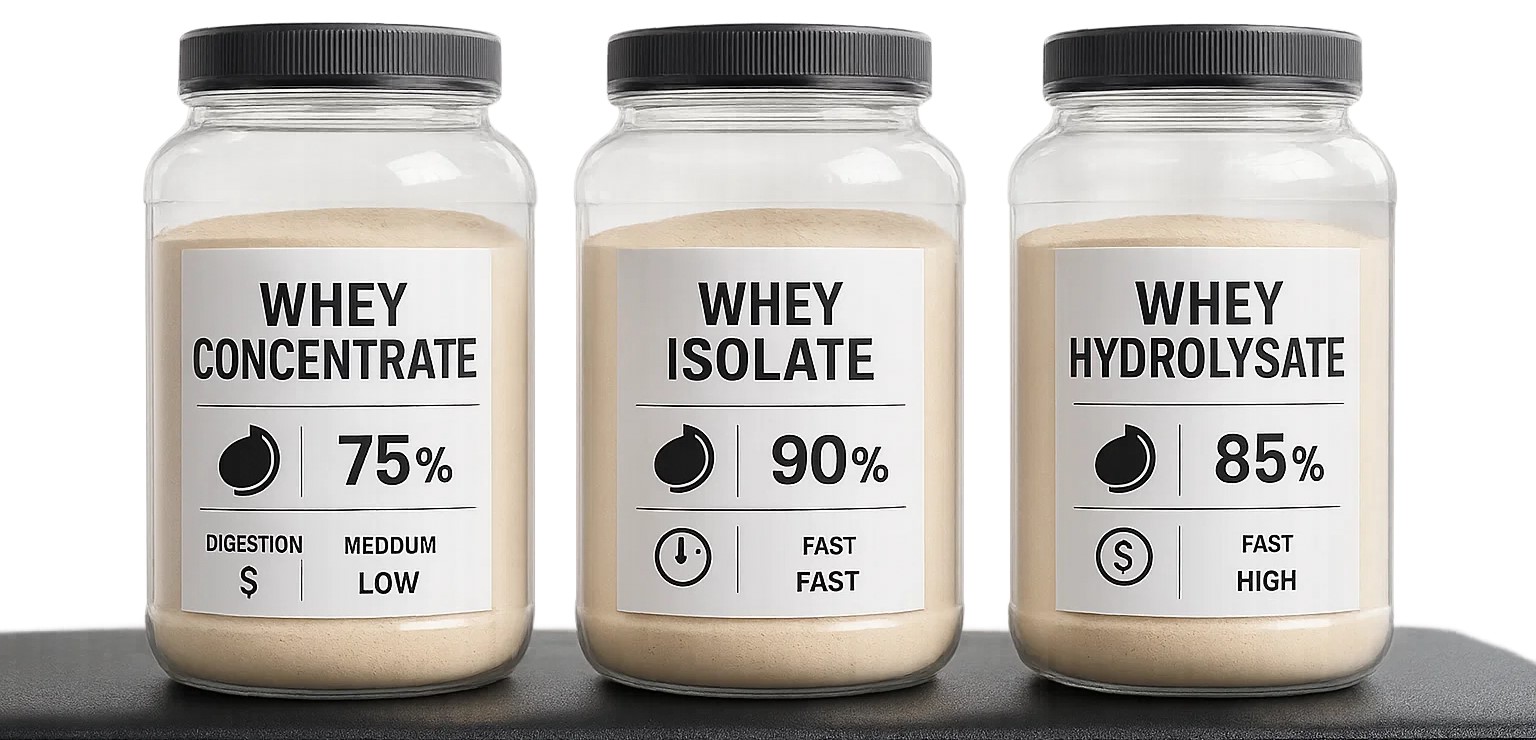Is Whey Protein Safe? A Complete Guide to Pros, Cons, and Best Practices

Strong 8k brings an ultra-HD IPTV experience to your living room and your pocket.
Whey protein is one of the world’s most popular dietary supplements. Athletes, bodybuilders, and everyday health-conscious people rely on it to boost muscle protein synthesis, support lean muscle growth, and improve recovery.
✍️ If you’ve been relying only on food for protein intake, you may be missing out. Our whey protein resource explains how it supplements diets effectively, especially for vegetarians who need an additional protein boost.
Milk naturally contains two proteins: casein (about 80%) and whey (about 20%). During cheese production, whey separates from the curds and is then filtered, dried, and processed into powder.
What makes whey unique is that it’s a complete protein, containing all nine essential amino acids. It is also highly digestible and absorbed faster than most other protein sources. Whey has relatively low lactose, though not everyone tolerates it well.
This guide uses 2025’s latest research and reviews to explain the benefits, risks, and best practices of whey protein.
What is Whey Protein?
-
Definition: Whey is the liquid by-product of cheese making, rich in proteins, bioactive peptides, and small amounts of fat and carbs.
-
Casein vs Whey: Casein digests slowly, releasing amino acids over hours, while whey digests quickly, making it ideal post-workout.
-
Production: Whey undergoes filtration to remove water, fat, and carbohydrates, yielding whey protein concentrate, isolate, or hydrolysate.
Nutritional Profile
-
Complete amino acid profile (including leucine, isoleucine, valine).
-
High leucine content (~10–12% of protein), which triggers muscle protein synthesis.
-
Rich in branched-chain amino acids (BCAAs) that promote recovery.
-
Low in lactose (varies by type; isolate contains the least).
-
Easily digestible compared to other animal proteins.
Types of Whey Protein
Benefits of Whey Protein
1. Muscle Growth
Whey protein is rich in leucine, the key amino acid that stimulates muscle protein synthesis.
-
2019 systematic review: Whey combined with resistance training enhanced muscle growth more effectively than other proteins【PubMed†】.
-
Works well both for young athletes and older adults seeking to maintain lean mass.
2. Lowering Cholesterol
-
2025 meta-analysis of 20 clinical trials found whey protein reduced triglycerides and increased HDL cholesterol (the “good” kind).
-
Lower triglycerides reduce risks of cardiovascular disease, while higher HDL supports long-term heart health.
3. Cardiovascular Health
-
2022 review: Whey may lower blood pressure, reduce inflammation, and improve vascular stiffness.
-
Some evidence suggests increased nitric oxide production, improving blood vessel function.
-
Findings are mixed, and benefits likely depend on dosage and individual health.
4. Anticancer Potential
-
2024 preclinical studies indicate whey protein can trigger apoptosis (programmed death of abnormal cells).
-
May help reduce muscle wasting in cancer patients undergoing treatment.
-
Still experimental—more human studies are needed.
5. Nutritional Support
Certain populations benefit from whey beyond sports nutrition:
-
Phenylketonuria (PKU) patients: A whey peptide called glycomacropeptide lacks phenylalanine, making it suitable for people who must avoid this amino acid.
-
Low body weight or appetite loss: Whey is calorie-efficient and easy to consume in shakes.
-
Older adults: Helps prevent age-related muscle loss (sarcopenia).
Potential Risks and Side Effects
1. Skin Issues
Some individuals report acne flare-ups linked to whey, possibly due to dairy’s influence on insulin and IGF-1 pathways.
2. Gut Microbiome Impact
Excessive whey may alter gut flora balance. Research is ongoing, but plant protein diversity may be preferable for long-term gut health.
3. Kidney and Liver Strain
-
Healthy adults: No evidence that normal whey intake harms kidneys or liver.
-
At risk: People with pre-existing kidney or liver disease should avoid high doses without medical guidance.
4. Lactose Intolerance & Allergies
-
Whey concentrate may cause bloating or cramps in lactose-sensitive individuals.
-
Whey isolate or hydrolysate is safer, but dairy-allergic people should avoid whey entirely.
5. Short-Term Digestive Issues
Some users experience:
-
Bloating
-
Gas
-
Nausea
-
Stomach cramps
These are usually dose-dependent and mild.
Using Whey for Muscle Building
-
Dosage (2019 data):
-
At rest: ~0.24 g/kg per serving optimizes protein synthesis.
-
After workouts: ~0.4 g/kg or higher.
-
-
Daily needs:
-
Athletes: ~1.6 g/kg body weight.
-
General adults: ~0.8 g/kg (minimum, often insufficient for training individuals).
-
Example: A 70 kg athlete may benefit from ~110 g protein daily, some of which can come from whey.
Stacking: Combining whey with creatine and carbohydrates enhances resistance training outcomes.
Best Practices for Safe Use
-
Stick to recommended dosages—overloading does not increase muscle growth.
-
Choose lab-tested brands (Labdoor, NABL-certified Indian labs).
-
For lactose intolerance: opt for whey isolate or plant-based alternatives.
-
Pair with whole foods (meat, fish, legumes, dairy, soy) for balanced nutrition.
FAQs
1. Is whey protein safe for daily use?
Yes, for healthy adults. Risks mainly apply to those with kidney/liver disease or severe lactose intolerance.
2. Can whey protein cause acne?
Some individuals experience skin issues. If acne worsens, switch to plant proteins.
3. What’s better: whey concentrate or isolate?
-
Concentrate: Cheaper, slightly more carbs/fats.
-
Isolate: Higher purity, less lactose.
4. Is whey protein necessary for muscle growth?
Not necessary, but it’s a convenient, efficient protein source compared to whole food alone.
5. Can whey protein replace meals?
No. Whey is a supplement, not a substitute for balanced meals.
6. Which whey protein brand is best in India?
Brands differ in price and quality. For updated comparisons, check bestproteinpowder.in.
7. Does whey protein damage kidneys?
Not in healthy people. The concern mainly applies to those with pre-existing conditions.
8. What time is best to take whey protein?
Post-workout is popular, but overall daily intake matters more than timing.
Conclusion
Whey protein is a complete, fast-digesting protein proven to aid muscle growth, recovery, and overall health. Benefits include improved cholesterol, possible cardiovascular support, anticancer properties, and use in special nutrition needs.
Risks exist: acne, mild digestive discomfort, or intolerance. Very high doses may stress kidneys in vulnerable individuals, but research shows whey is safe for most healthy adults.
The best practice is to use whey moderately, consistently, and with lab-tested brands. As always, consult a doctor or dietitian before starting long-term supplementation.
For reliable recommendations across all budgets, visit bestproteinpowder.in
Note: IndiBlogHub features both user-submitted and editorial content. We do not verify third-party contributions. Read our Disclaimer and Privacy Policyfor details.








